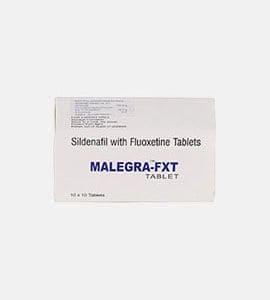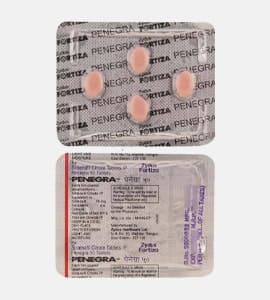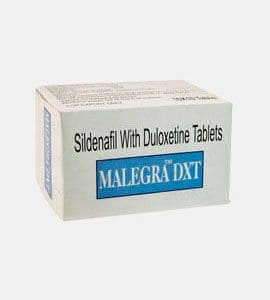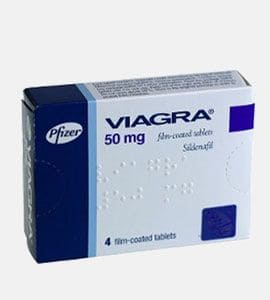Common Use
Brand Levitra was developed by the pharmaceutical company Bayer/GlaxoSmithKline and uses Vardenafil HCl as the main component of the medication. Levitra is an oral drug used to treat erectile dysfunction. Sexual stimulation causes the production and release of nitric oxide from the nerve endings of the cavernous bodies of the penis, thereby activating the enzyme guanylate cyclase. Guanylate cyclase, in turn, is responsible for the production of cyclic guanosine monophosphate (cGMP). The cGMP causes widening and relaxation of the blood vessels carrying blood to the penis. Levitra prevents phosphodiesterase-5 enzyme from destroying cGMP and thus helps to support blood flow to the penis.
Dosage and Direction
The recommended dose of Levitra is 10 mg per day taken an hour before intercourse. If no side effects are experienced, the dosage can be increased up to 20 mg. In case of adverse effects, the dose is reduced to 5 mg daily. Do not take more than one tab of Levitra a day.
Precautions
Levitra has not been studied in people with cardiovascular disease, so it is preferable to avoid Levitra in patients who have had a stroke, heart failure, or a heart attack in the history, especially within the last six months. Before taking Levitra, inform your doctor if you have kidney or liver problems, a bleeding disorder, stomach ulcer, or an inherited retinal disorder such as retinitis pigmentosa, an allergic reaction to this medicine or any other medicines, deformation of the penis such as angulation, cavernous fibrosis (Peyronie's disease), as well as diseases that contribute to the development of priapism (sickle-cell anemia, multiple myeloma, leukemia).
Contraindications
Levitra is contraindicated in patients with hypersensitivity to its ingredients, those treated with organic nitrates, in patients under 16 years old, or those who take HIV protease inhibitors such as indinavir and ritonavir.
Possible Side Effects
Levitra is usually well-tolerated and side effects, if they occur, are transient. The most frequent side effects are:
- Headache
- Flushing (hyperemia of the face)
- Dizziness
- Diarrhea
- Nausea
- Nasal congestion
More rare and uncommon adverse effects include:
- Photosensitivity of the skin
- Hypertension
- Back pain
- Watery eyes
- Hypotension
- Myalgia
- Priapism
Drug Interaction
Levitra's metabolism is inhibited by erythromycin, ketoconazole (Nizoral), itraconazole (Sporanox), indinavir (Crixivan), and ritonavir (Norvir). Levitra reduces the concentration of ritonavir and indinavir. In patients treated with nitrates, Levitra may aggravate chest pain by increasing heart rate and lowering blood pressure. Levitra is able to exaggerate the blood pressure lowering effects of alpha-blocking drugs (terazosin or Hytrin). Levitra should never be administered in patients treated with organic nitrates.
Missed Dose
Levitra is taken when needed but not more often than once daily, so a missed dose is not supposed.
Overdose
Symptoms of overdose include pain in the back, jaw, arm, blindness, blurred vision, chest pain or discomfort, decreased vision.
Storage
Store at room temperature between 15-30°C (59-86°F) away from children, pets, moisture, and sunlight.
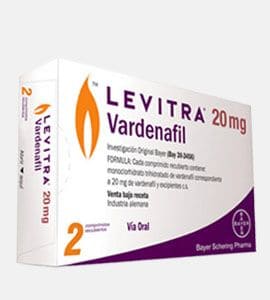

 English
English
 العربية
العربية
 Français
Français
 Deutsch
Deutsch
 Español
Español
 Čeština
Čeština
 Italiano
Italiano
 SEK
SEK


